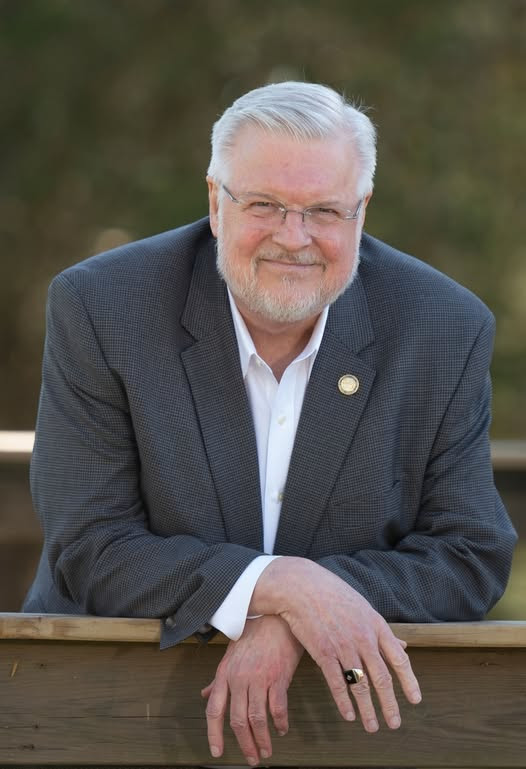by Rev. Mark Creech, D.H.L.
RevMarkCreech.org
Charles Spurgeon once wrote of Psalm 46, “Great people who are like mountains may quake for fear in times of great calamity, but those whose trust is in God need never to be dismayed… It would be well if all of us could say ‘Selah’ under tempestuous trials, but alas! Too often we speak in our haste… and mar the melody of our life song.” Though penned in another century, Spurgeon’s insight seems to address moments like our own.
There come seasons in the believer’s life when the world seems to shift beneath him. Calamity arrives without warning. The waters roar, the mountains shake, and even those who once appeared immovable feel their knees buckle beneath them. None of us is as strong as others believe us to be; none of us is as unshakable as we may have imagined ourselves. Yet Spurgeon reminds us that faith does not promise immunity from trembling. It promises that beneath the terror lies a deeper steadiness, an anchoring in the God who declares Himself “a very present help in trouble” (Psalm 46:1).
In the midst of Psalm 46, there appears the small but weighty word, Selah. It represents a rest in ancient music – a pause in a song – not a crack in the melody, but an intended space. Spurgeon understood it as the moment when the master musician lifts His hands, not because the score is lost, but because the following note requires fresh intention. God is the same toward those who know and trust Him. When trouble presses in and the heart feels its strings twisted out of tune, the Lord doesn’t always bid us to push forward with haste. Sometimes, he wants us to stop, to breathe, to be still long enough for the inner man to return to its rightful pitch.
The temptation, of course, is to flee the uncertainty we feel. We rush to conclusions, rush to make decisions – even rush to shield ourselves from the pain of bewilderment and unanswered questions. Our words can come quickly, unmeasured; our actions then follow suit, driven more by impulse than wisdom. In doing so, we strike the chords of our lives with trembling hands, and the sound comes out harsh and discordant. Spurgeon said it well: in our haste, we “mar the melody.” Yet the pause God asks of us is never a retreat. It is a moment for faith in action. It is a quiet audacity to remain still in a world that demands knee-jerk reactions, to let God’s voice rise above the noise, to allow Him to retune what suffering has strained.
There is something extraordinary about Spurgeon’s observation that the believer can “calmly confront the danger and meditate upon terror.” This is not a call to morbid introspection, but an acknowledgment that the child of God does not need to avert his eyes from the truth. He can look directly at the storm – see its details, its weight, its reality, and not be overtaken. The one who rests in God may see the whole shape of the trial without losing the full assurance of the divine presence. He can name the sorrow, acknowledge the grief, recognize the wound, and yet whisper, “As surely as Jesus was in the boat with His disciples during the tempest on the Sea of Galilee, the Lord’s presence is here with me; I shall not be of little faith.”
When this honest reckoning has been made, the heart is finally quiet enough to sense another tremendous truth: in such a pause, trials have a way of loosening the strings of the soul – our patience, our peace, our confidence, our discernment. The Selah is God’s gentle hand tightening what has slackened, softening what has grown brittle, bringing the inner life back into harmony with His purposes. The storm does not cease at once, but the heart begins again to find its pitch. The melody is not broken; it is being prepared for another movement as vital as any that came before.
Believer! Can you see this blessed and joyous truth!
Today many are walking through such pauses, moments when familiar patterns collapse and decisions must be weighed with care, when losses accumulate and answers remain elusive, when old certainties feel shaken and new paths are dimly lit. To these weary hearts, Spurgeon’s counsel is a medicine. The pause is not God’s abandonment. It is the place where He steadies trembling hands to restore and accentuate the melody. It is His invitation to trust Him with a renewed tenderness, to wait without panic, to allow Him to order what chaos has disordered.
Even mountains quake, but they do not fall. The believer who leans into God during the Selah will discover that the shaking, however painful, cannot erase the faithfulness of the One who holds him. The rest between the notes is not the end of the song. It is the quiet where God prepares the next measure, shaping it with a beauty only He can compose.
Selah.


